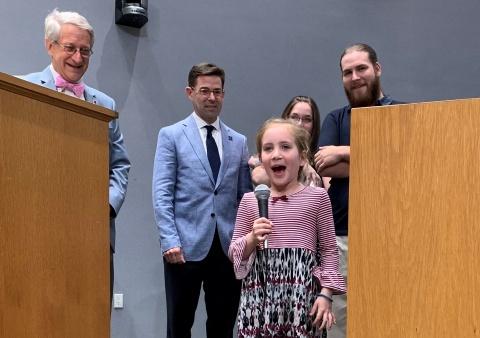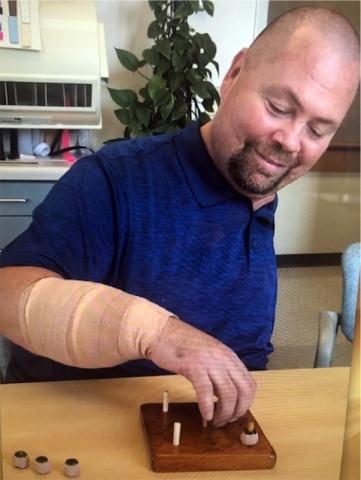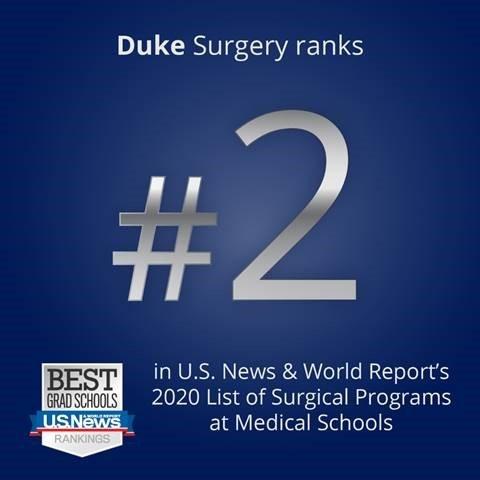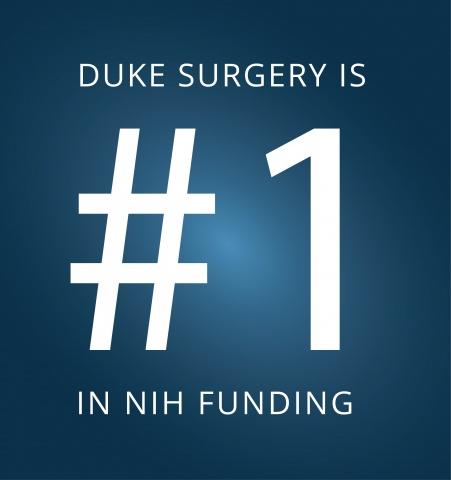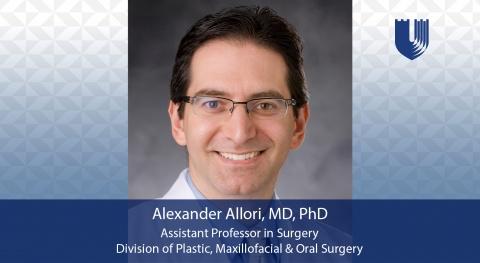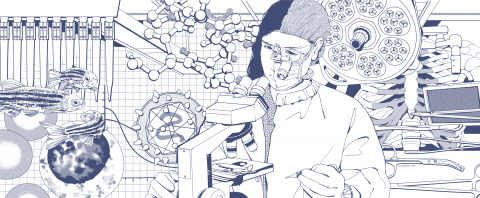Duke Cleft and Craniofacial Center Receives Proclamation from Durham Mayor
On August 5, Durham Mayor Steve Schewel presented the Duke Cleft and Craniofacial Center with a Proclamation to promote cleft and craniofacial awareness in Durham. One of the team’s patients, Marilyn Taylor, a 7-year-old Durham County resident, accepted the Proclamation along with Dr. Jeffrey Marcus, Professor and Chief, Division of Plastic, Maxillofacial, and Oral Surgery and Director of the Duke Cleft and Craniofacial Center. The center is so proud of Marilyn for representing their team!
Cost of Breast Cancer Surgery Influences Many Women’s Treatment Duke Health Team Performs Novel Hand Transplant on Father’s Day
A Duke Health team removed a patient's partial, non-functional hand and transplanted a donor hand at the same time. This surgical case marks the third hand transplant at Duke and in the state of North Carolina.
Led by Dr. Linda Cendales, Director of the Duke Vascularized Composite Allotransplantation Program, a team of over 30 surgeons, anesthesiologists, operating room staff, residents, fellows, lab technicians, and transplant and research coordinators worked tirelessly over 14 hours to make the novel procedure a success.
Duke Surgery Holds 4th Annual Research Day
The Department of Surgery held its 4th Annual Research Day April 17. The department holds this event annually to advance its mission of improving patient care through research and training the next generation of surgeon–scientists. The event recognizes the accomplishments of fellows, residents, and students engaged in clinical or basic and translational research through the department.
Cleft Courage Bears Provide Comfort to Patients
The Duke Cleft and Craniofacial Center was recently chosen to partner with the American Cleft Palate–Craniofacial Association (ACPA) to distribute GUND teddy bears to cleft and craniofacial patients who visit the center.
A distinguishing feature of the Cleft Courage Bears is a stitched (repaired) cleft lip designed to bring comfort to cleft patients who may feel anxious about their facial differences. So far, the bears have been a hit with patients.
Duke Surgery Ranks 2nd Among Surgery Programs at Medical Schools
The U.S. News and World Report has ranked the Duke University School of Medicine 2nd in surgery among the best medical schools in the country. This 2nd place ranking is up considerably from the department’s 5th place ranking last year.
Woman Who Lost Her Hands, Feet Gets Life-Changing Procedure from Duke University Hospital
DURHAM, N.C. (WNCN) - An infection took a local woman's arms and legs, but a life-changing surgery at Duke gave back her independence. Deb Kelly is the first person in North Carolina to receive a bilateral hand transplant.
Duke Surgery Ranks First Nationwide in NIH Funding
The Blue Ridge Institute for Medical Research has released its 2018 rankings of NIH funding for basic and clinical science departments, revealing that Duke Surgery ranks highest nationwide with more than $30 million in funding committed to research.
Alexander Allori, MD, MPH, Receives KLS-Martin Educational Grant for ACQUIREnet Project
The KLS-Martin Group, a medical technology company that focuses on specialty markets, such as cranio-maxillofacial surgery, has awarded a $20,000 unrestricted educational grant for use toward the Allied Cleft Quality-Improvement and Research Network (ACQUIREnet) project.
Duke Health Team Performs First Bilateral Hand Transplant on Thanksgiving Day
In another first for the state and the region, a Duke Health team of over 40 hand surgeons, anesthesiologists, operating room staff, residents, fellows, lab technicians, and other key staff performed a bilateral hand transplant on Thanksgiving Day.
Dynamic Equilibrium: Finding Balance for the Surgeon–Scientist
With a buzzing phone and dinging inbox repeatedly begging for her attention, Dr. Georgia Beasley momentarily tunes out the chaos to discuss the journey that led to her current position at Duke. Here, she splits her time between treating melanoma patients in the clinic and researching novel treatments for the disease in the laboratory.
